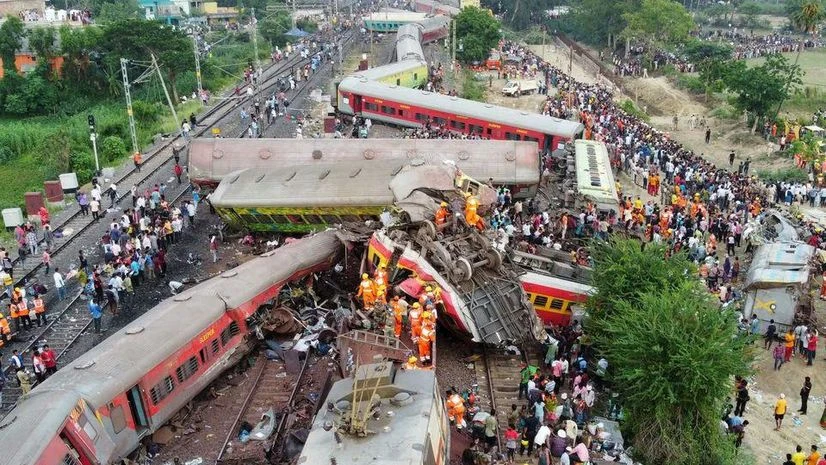A month after the triple train collision in Odisha that resulted in the death of almost 300 people, a high-level investigation by the Commission of Rail Safety (CRS) has said that the lack of vigilance by several staff members and lapses by signalling and telecommunications department at multiple levels caused the accident.
"These lapses resulted in wrong signalling to Train 12841 (Shalimar-Chennai Coromandel Express), where green signal was indicated for run through movement on the main line of the station, but crossover 17 A/B was set to the up loop line. This caused the train to traverse on a loop line, and an eventual rear collision with the goods train," the CRS report, seen by Business Standard, said.
While the official responsibility by the CRS has been pinned on the signalling staff, the probe also found several systemic issues, which, if corrected in time, could have averted the accident.
The station master did not alert the signalling staff despite unusual occurrences in the changing of signal, such as instant normal indication on the panel, despite the usual time required for safe execution of the operation of a point being around 15 seconds, the report said.
The report added that the station master should have taken off the ‘home’ signal for the Coromandel Express.
Also Read
“Notwithstanding the lapses in signalling work, had the station master, Bahanaga Bazar, informed the repeated unusual behaviour of the crossover 17 A/B to the signalling and telecom staff, they could have traced the false feed extending to the Electronic Interlocking logic for circuit of crossover,” the report said, under the header “Could the accident have been averted?”
The probe added that the modalities of implementation and the scale of alterations on the circuit diagram “should not have been left to the discretion of the field supervisors.”
It also found that a similar incident had been reported on May 16, where there was a mismatch between the signal given for an intended route and the actual route taken by the train, and had the issue of cable fault in that incident.
Railways should have deployed teams to examine and correct any errors in modified circuits, among other measures, it said.
Meanwhile, Congress leader Jairam Ramesh has slammed the Centre over its handling of the accident.
"It is clear that the sabotage theory floated by the prime minister and Railway Minister is to escape accountability and manage the headlines. The Commissioner of Rail Safety has concluded that severe shortcomings in procedures and systems relating to rail safety resulted in the Balasore train disaster," Ramesh tweeted on Wednesday.
The CRS also recommended several measures to rectify the errors that led to the accident, so that such instances do not happen again.
One of the recommendations is the strict compliance with the standard procedure in signalling modification works.
“In the event of a condition where pickup of both ‘normal’ and ‘reverse’ is detected for a point, all signal movement over that point should be prevented,” it said.
The safety body also recommended that signalling functions should be directly connected to electronic interlocking through optical fibre cables, eliminating intermediate relays.
Railways officials said they are reviewing the report.
Meanwhile, a simultaneous probe by the Central Bureau of Investigation is also underway.

)
